A eulogy is a speech or written tribute that is given in memory of someone who has passed away. It is an opportunity to honor the life and legacy of the individual and to offer comfort and support to their loved ones.
A eulogy can be delivered by a family member, close friend, or religious leader, and is often a deeply personal and emotional expression of love and respect. In this article, we will explore the purpose and structure of eulogies, as well as offer tips and guidance on how to write and deliver a meaningful and impactful eulogy.
Table of Contents
What is the purpose of a eulogy?

The purpose of a eulogy is to honor and remember the life of someone who has passed away. A eulogy provides an opportunity for family, friends, and other loved ones to pay tribute to the individual and reflect on their life, accomplishments, and the impact they had on others. A eulogy can also help to bring closure and comfort to those who are grieving, allowing them to express their feelings and emotions.
In addition to remembering the life of the individual, a eulogy can also serve as a celebration of their legacy and the positive impact they had on the world. A well-crafted eulogy can leave a lasting impression on those in attendance and help to ensure that the memory of the individual lives on.
Overall, the purpose of a eulogy is to celebrate the life and legacy of the individual, provide comfort and support to loved ones, and ensure that their memory lives on.
Eulogy Templates
Eulogy templates are pre-designed documents that provide guidance and structure for those tasked with writing and delivering a eulogy for a loved one who has passed away. These templates typically include prompts and sections for highlighting the life and accomplishments of the deceased, as well as providing a framework for expressing gratitude, sharing memories, and offering words of comfort to family and friends. By using an eulogy template, individuals can more easily organize their thoughts and emotions, and create a meaningful tribute to honor the life of their loved one.
Who gives a eulogy at a funeral?
A eulogy can be given by a variety of people, including family members, close friends, or religious leaders. In some cases, multiple people may give a eulogy, each offering their own unique perspective and memories of the individual.
In traditional religious funerals, a religious leader, such as a minister, priest, rabbi, or imam, may give the eulogy. In secular or non-religious funerals, the eulogy may be given by a family member, close friend, or even a professional speaker.
Ultimately, the decision of who will give the eulogy is up to the family and loved ones of the individual who has passed away. It is important to choose someone who was close to the individual and who will be able to deliver a meaningful and impactful tribute.
What should be included in a eulogy?
A eulogy is a personalized tribute to the life of the individual who has passed away, and as such, the specific elements that should be included will depend on the person and their relationships with others. However, some common elements that are typically included in a eulogy include:
Introduction: A brief introduction that sets the tone for the eulogy and establishes the speaker’s relationship with the individual who has passed away.
Personal anecdotes: Personal stories and memories that illustrate the unique personality and character of the individual.
Accomplishments: A summary of the individual’s achievements and accomplishments, including education, work, and other notable events.
Personality traits: A description of the individual’s unique personality traits and the ways in which they impacted others.
Legacy: A reflection on the impact that the individual had on the world and the ways in which their memory will live on.
Expressions of love and gratitude: An expression of love, gratitude, and appreciation for the individual and all that they brought to the lives of others.
Closing: A closing that brings the eulogy to a close and offers words of comfort and support to loved ones.
What makes a perfect eulogy?
A perfect eulogy is one that is well-crafted, sincere, and meaningful. Some key characteristics of a good eulogy include:
Personalization: A good eulogy is tailored to the individual who has passed away and reflects their unique personality, character, and relationships with others.
Empathy: A good eulogy is delivered with empathy and understanding for the loved ones who are grieving and acknowledges their loss.
Sincerity: A good eulogy is sincere and speaks from the heart, without any exaggeration or embellishment.
Balance: A good eulogy strikes a balance between honoring the individual and acknowledging the loss and grief felt by loved ones.
Relevance: A good eulogy is relevant to the individual and the audience and provides meaningful insights and reflections on their life and legacy.
Organization: A good eulogy is well-organized and structured, with a clear beginning, middle, and end.
Delivery: A good eulogy is delivered with confidence and professionalism, with appropriate tone and pace.
What to avoid in a eulogy
When delivering a eulogy, it is important to avoid certain behaviors and practices that can detract from the message and tone of the tribute. Some things to avoid in a eulogy include:
Exaggeration: Avoid exaggerating the individual’s accomplishments, achievements, or personality traits.
Negative comments: Avoid speaking negatively about the individual or others, as this can detract from the overall message of the eulogy and can be hurtful to loved ones.
Unfamiliar stories: Avoid sharing stories or anecdotes that are unfamiliar to the audience, as these can be confusing and distracting.
Political or religious views: Avoid discussing political or religious views, as this can be divisive and inappropriate in a funeral setting.
Sensitive topics: Avoid discussing sensitive topics such as death, illness, or personal conflicts, as these can be upsetting to loved ones.
Humor: Avoid using humor in a way that is insensitive, inappropriate, or offensive.
Length: Avoid making the eulogy too long, as this can become monotonous and detract from the overall impact of the tribute.
How long should a eulogy be?
The ideal length of a eulogy will depend on several factors, including the setting, audience, and personal style of the speaker. However, as a general guideline, a eulogy should be between 3 to 5 minutes in length.
A eulogy that is too short may not provide enough information or detail to adequately honor the individual, while a eulogy that is too long can become monotonous and lose the attention of the audience.
By focusing on the key elements of the individual’s life and legacy, and organizing your thoughts into a clear and concise tribute, you can deliver a eulogy that is both meaningful and memorable. It is also important to remember that a eulogy is just one part of a funeral or memorial service, and that other tributes and rituals may also be included.
How to Write a Eulogy
Writing a eulogy can be a challenging and emotional task, but it can also be a meaningful way to honor the memory of someone who has passed away. Here is a step-by-step guide to help you write a eulogy:
Gather information
Before you start writing, gather as much information as possible about the individual who has passed away. This may include their birth and death dates, accomplishments, personal history, and hobbies or interests. You can also speak with friends and family members to gain insights and anecdotes about the individual.
Determine your focus
Consider what you would like to focus on in your eulogy. This may be the individual’s personal characteristics, accomplishments, relationships, or a specific moment or event in their life.
Organize your thoughts
Once you have gathered information and determined your focus, start organizing your thoughts into a clear structure. You may want to start with an introduction that provides background information and sets the tone, followed by a body that includes specific anecdotes, reflections, and tributes, and ending with a conclusion that summarizes your thoughts and acknowledges the loss.
Write a draft
Start writing a rough draft of your eulogy, focusing on the key elements and stories that you would like to include. Don’t worry about making it perfect at this stage, as you can always make revisions later.
Revise and edit
After you have written your first draft, read it over and revise as needed. Consider cutting out any sections that are not essential or that detract from the overall message. You may also want to edit for clarity, accuracy, and tone.
Rehearse
Once you have a final draft, practice delivering your eulogy out loud several times. This will help you become comfortable with the delivery, and you can make any necessary adjustments based on how it sounds when spoken.
Delivering the eulogy
When it is time to deliver the eulogy, speak clearly and confidently, focusing on your delivery and connection with the audience. You may also want to bring a copy of the eulogy with you, in case you need to refer to it during the delivery.
FAQs
Can a eulogy be humorous?
Yes, a eulogy can be humorous, as long as it is appropriate and respectful. Humor can be a way to lighten the mood during a difficult time, and can help to celebrate the person’s life in a positive way. However, it’s important to consider the audience and to ensure that any humor used is not hurtful or insensitive.
Is it necessary to have a eulogy at a funeral?
Having a eulogy is not necessary, and some people choose to have a funeral without one. The decision to include a eulogy in a funeral or memorial service is a personal one, and should be made based on the individual needs and preferences of the family and loved ones.
Can a eulogy be delivered by someone who did not know the person well?
Yes, a eulogy can be delivered by someone who did not know the person well, as long as they have a meaningful connection to the person’s life or memory. However, it’s usually best to have a eulogy delivered by someone who was close to the person, as they will be able to provide more meaningful reflections and anecdotes.
What if I’m nervous about giving a eulogy?
It’s normal to feel nervous about giving a eulogy, especially if you are grieving and emotional. To help calm your nerves, it’s important to prepare well in advance, practice your delivery, and seek support from friends and family. You may also find it helpful to take deep breaths and remind yourself that the purpose of the eulogy is to honor the person who has passed away and to provide comfort and support to loved ones.
Can a eulogy be delivered in a non-religious setting?
Yes, a eulogy can be delivered in a non-religious setting, such as a secular funeral or memorial service. A non-religious eulogy should focus on honoring the person’s life and memory, and providing comfort and support to loved ones, regardless of religious beliefs.
Can a eulogy be delivered in a different language?
Yes, a eulogy can be delivered in a different language, as long as the audience is able to understand it. If you are delivering a eulogy in a language that is not familiar to everyone in the audience, you may consider including a translation or providing a summary in a more familiar language.


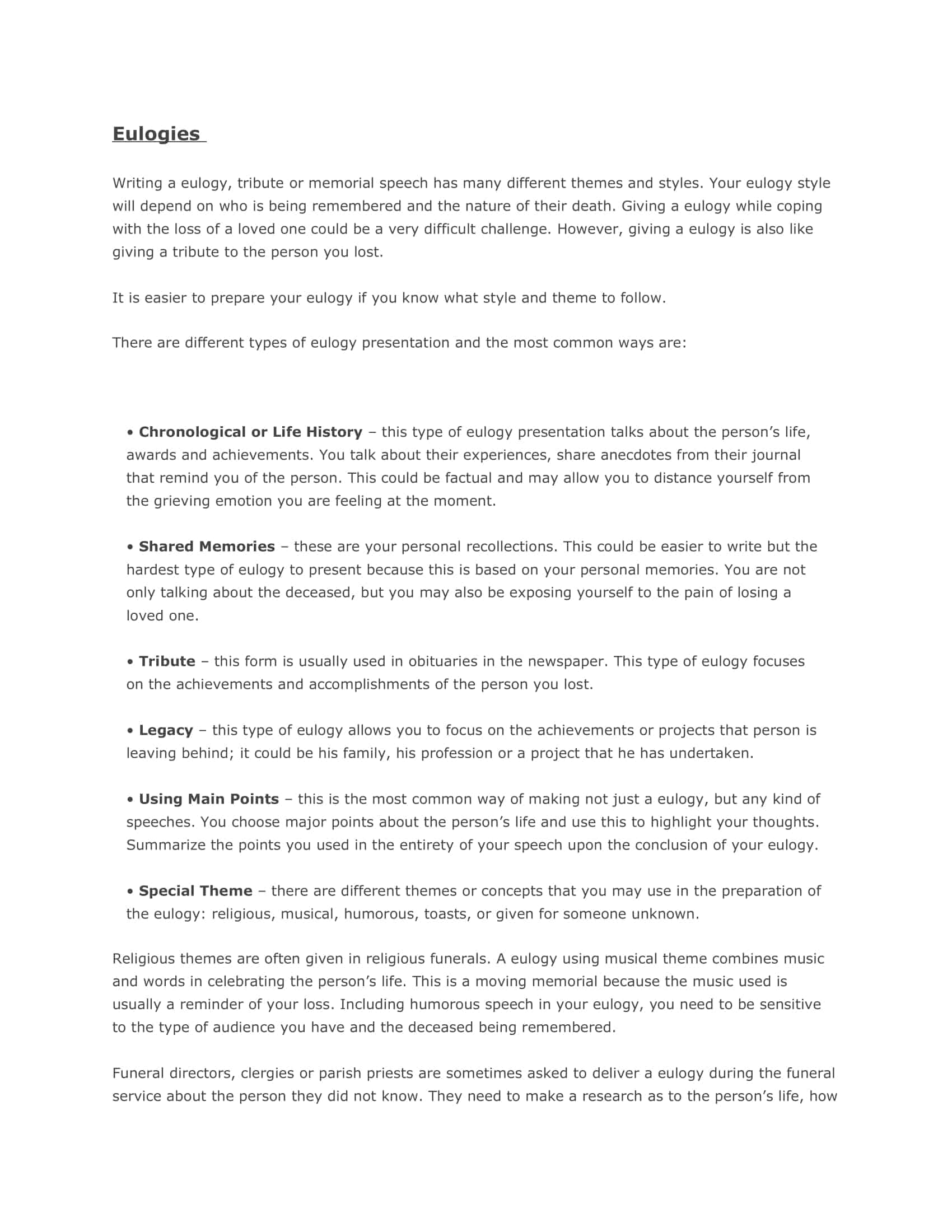




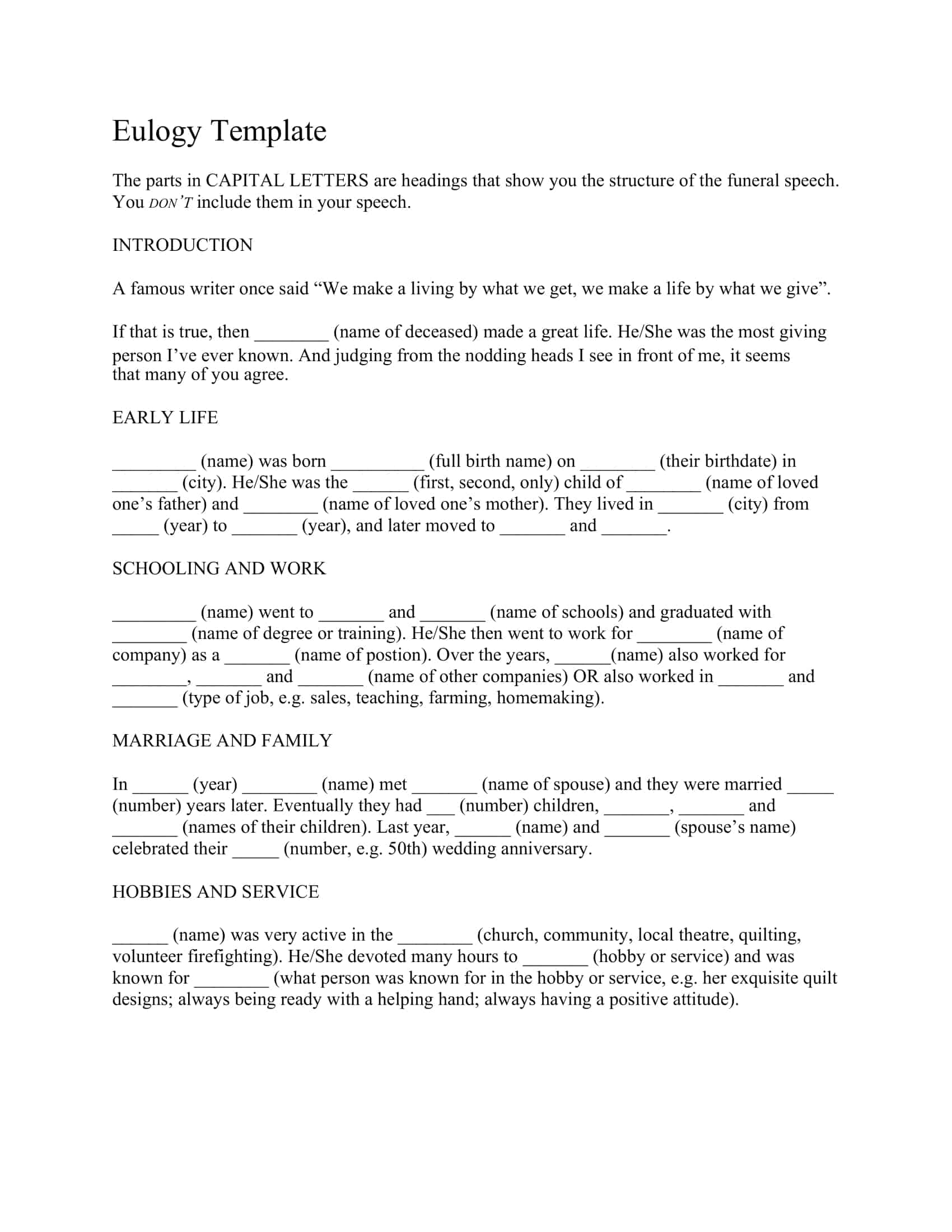




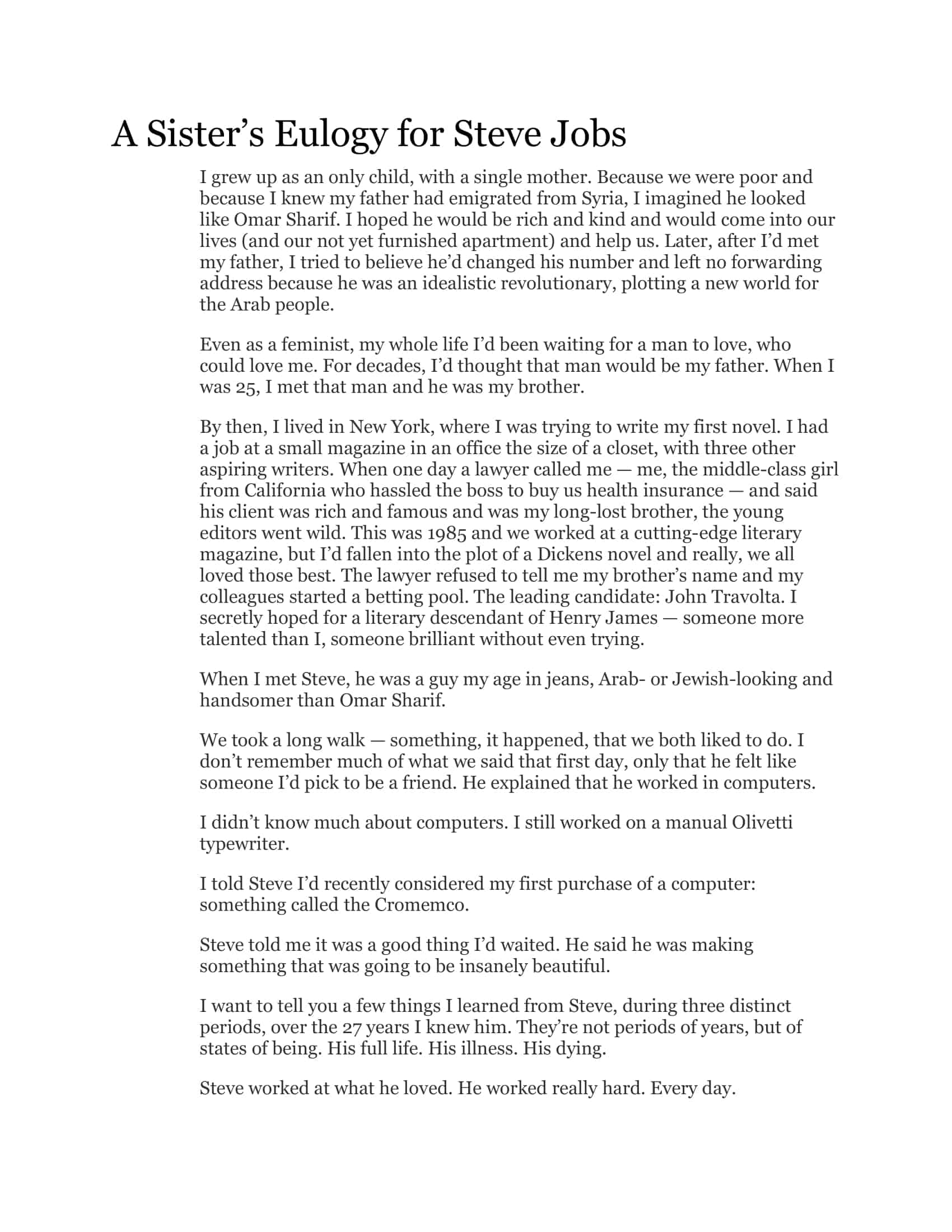
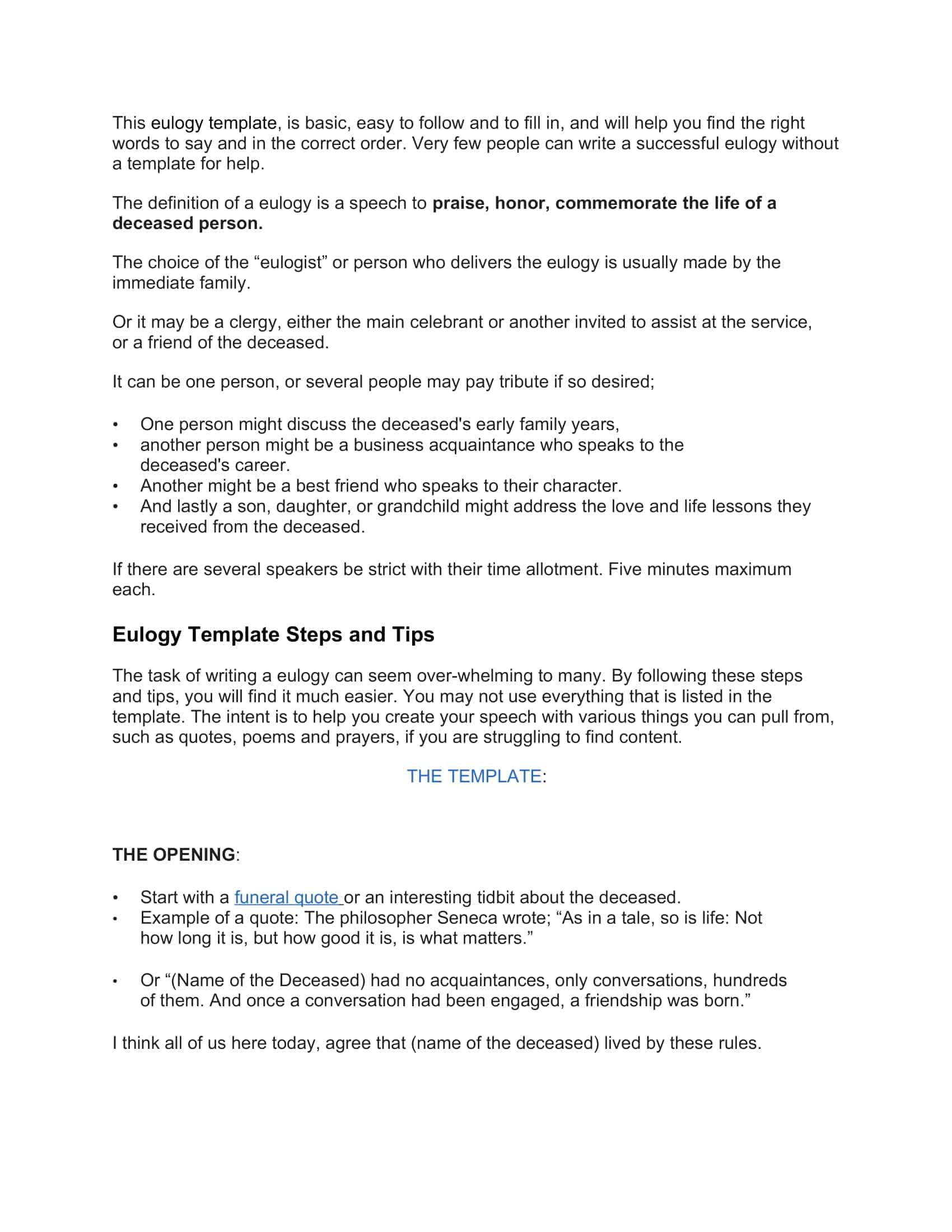
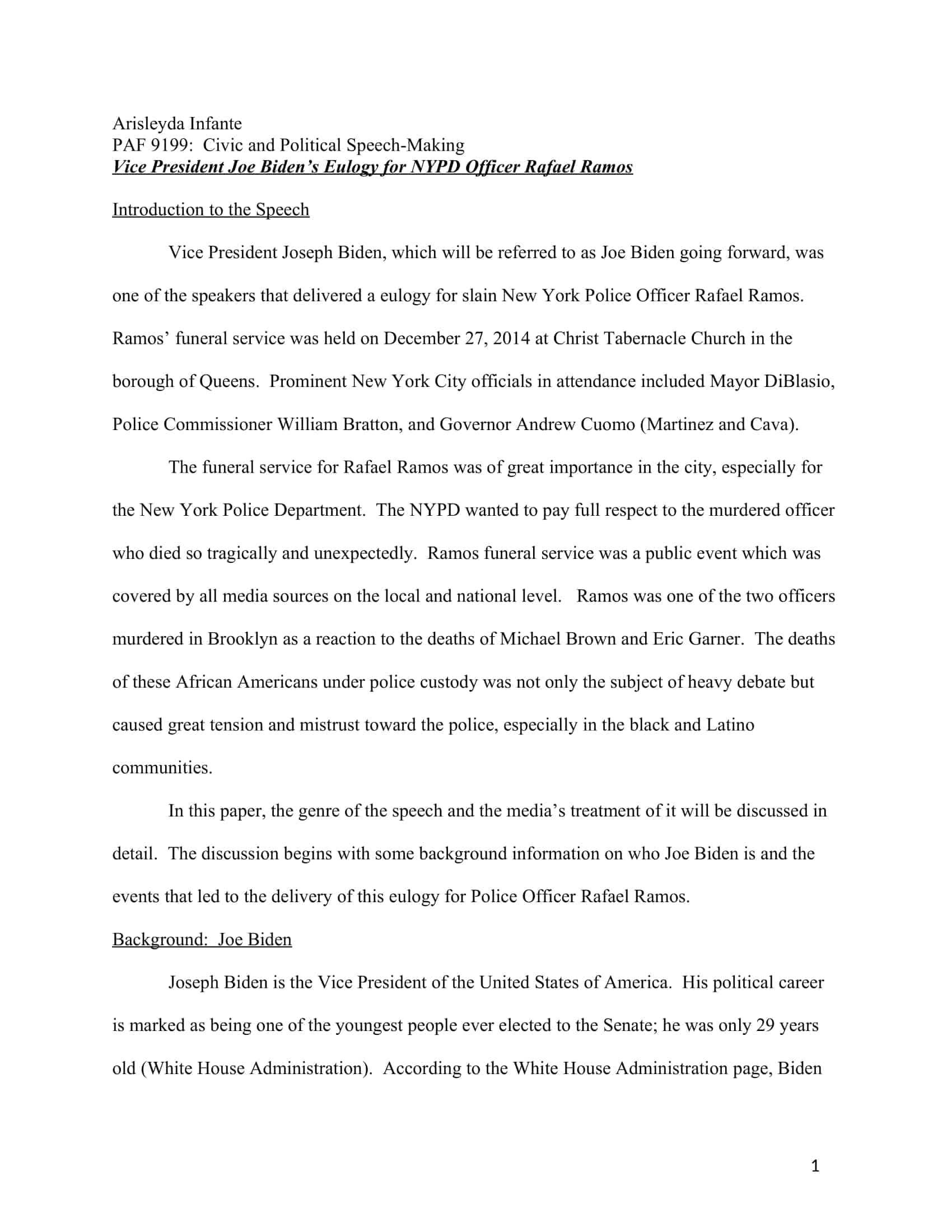

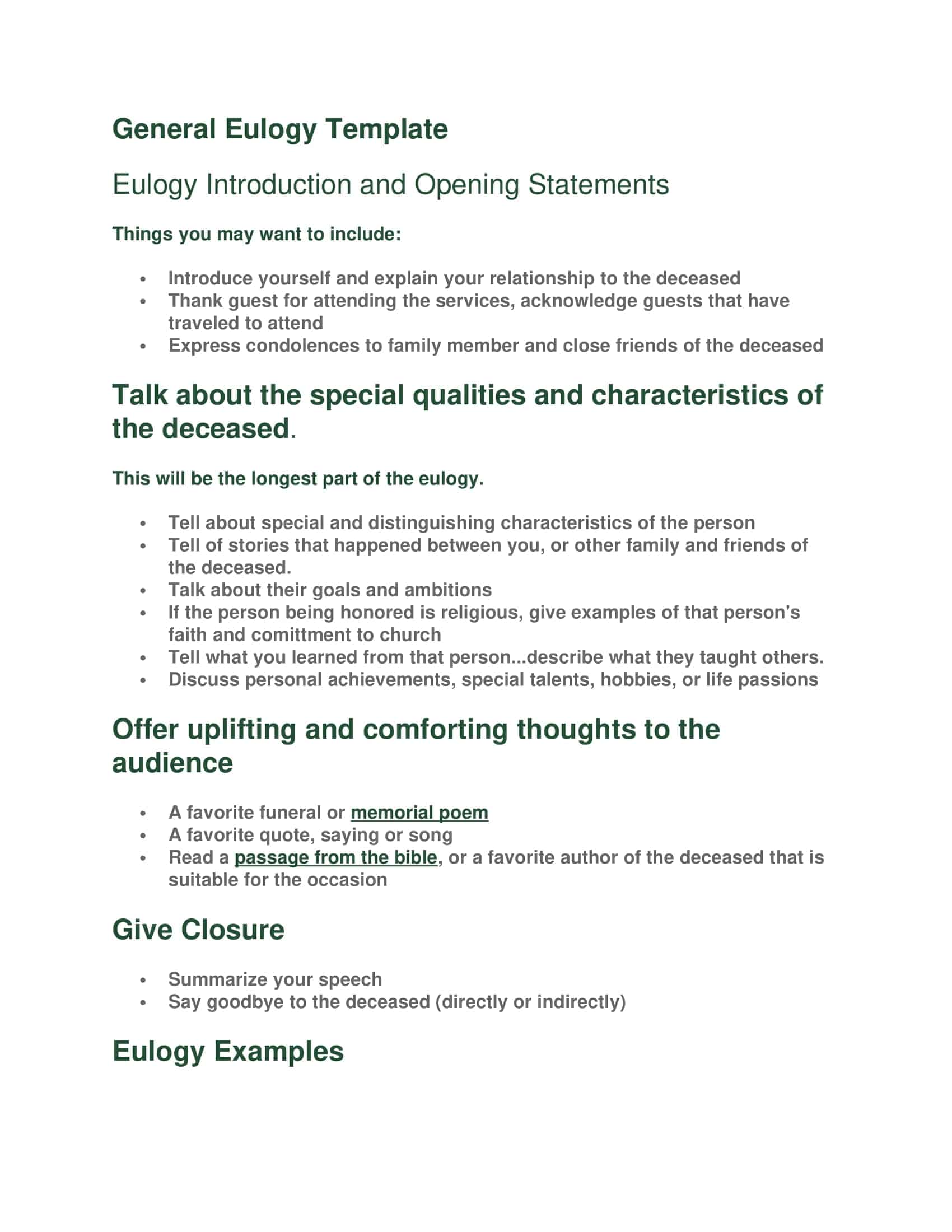





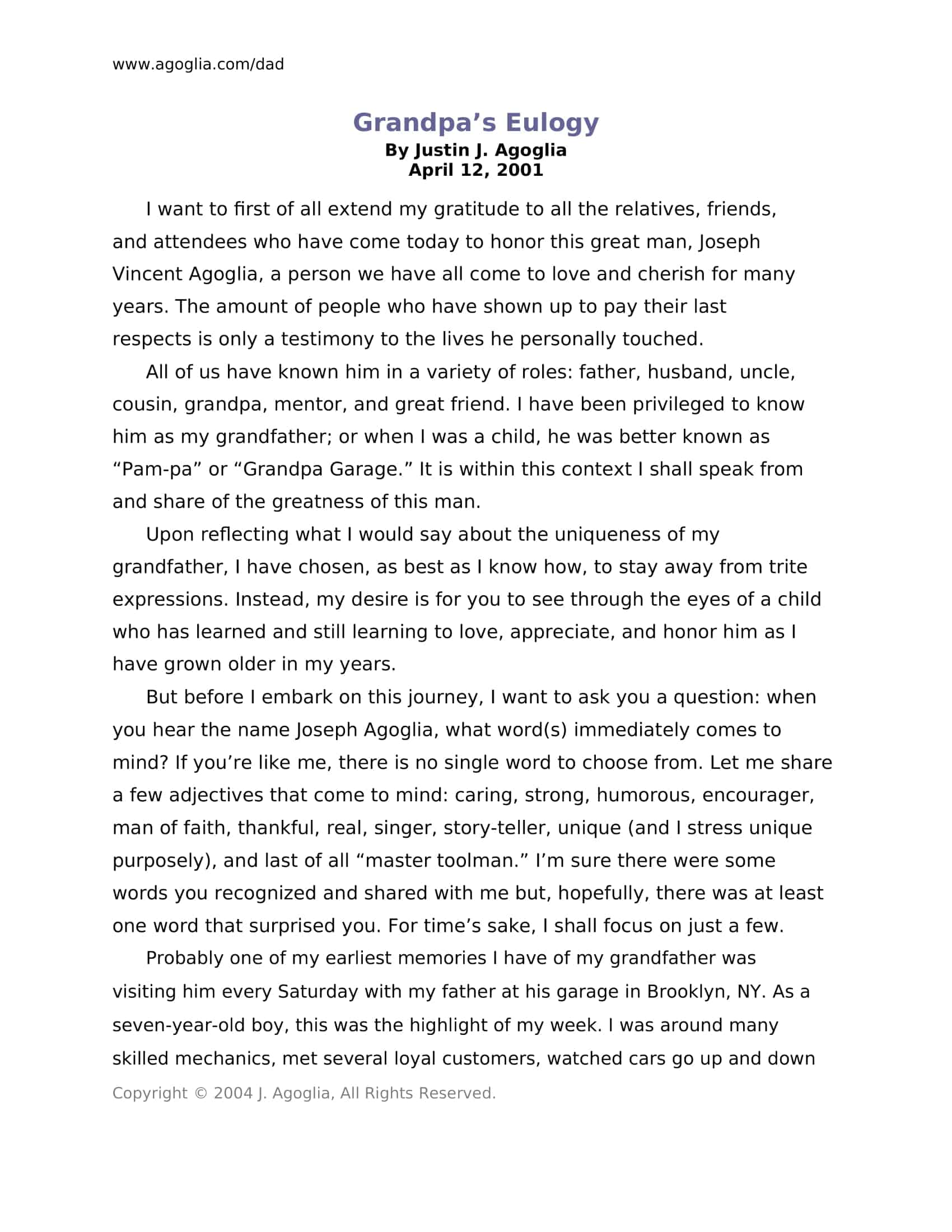
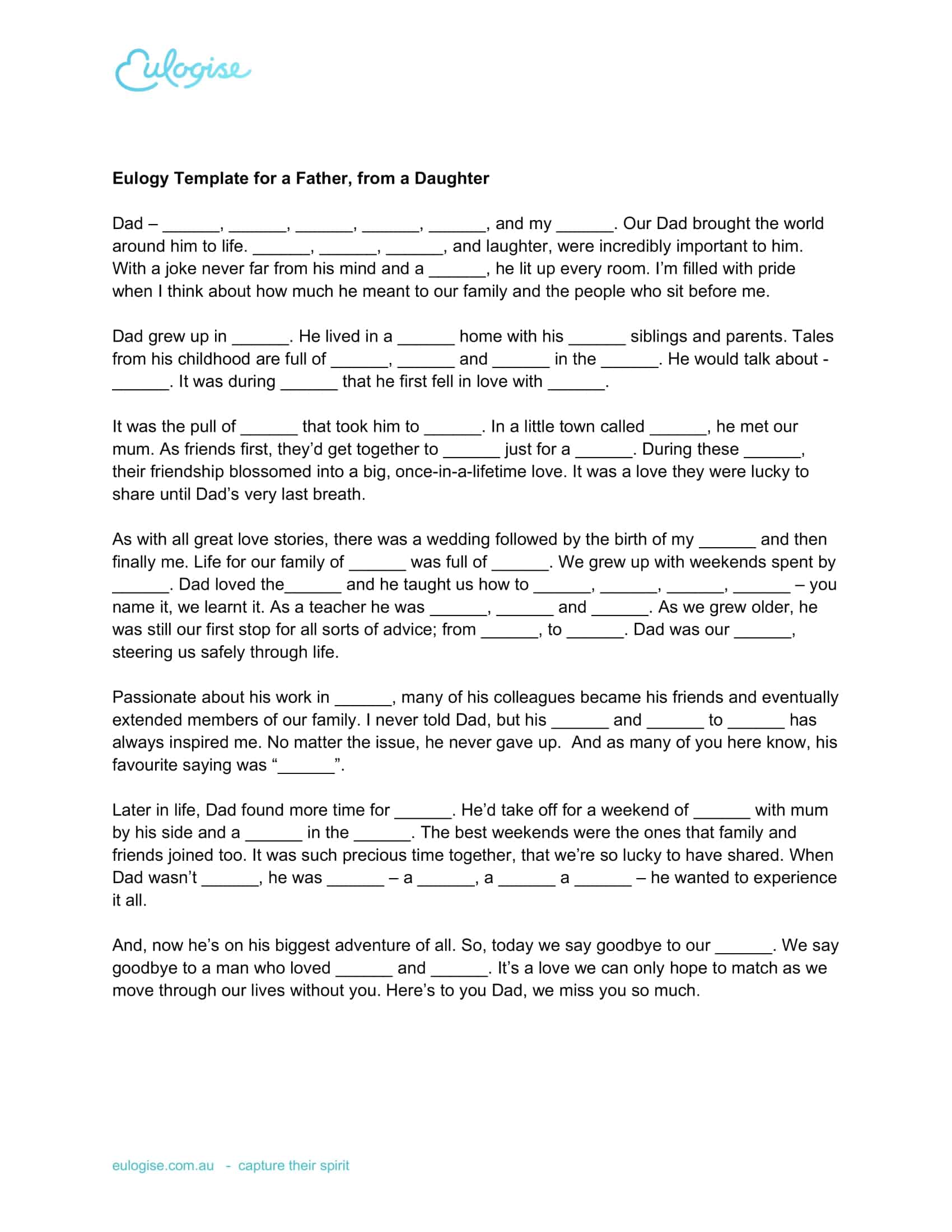


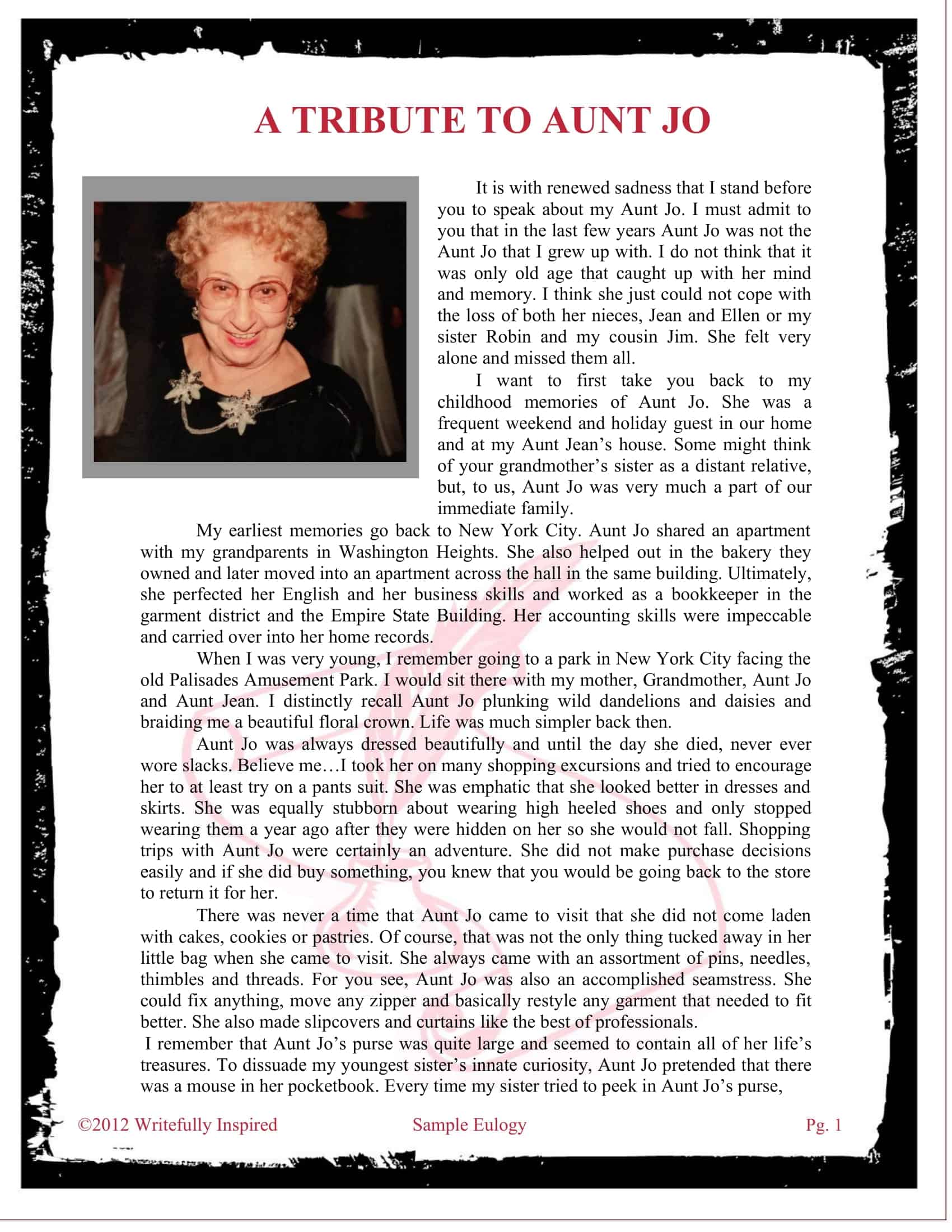







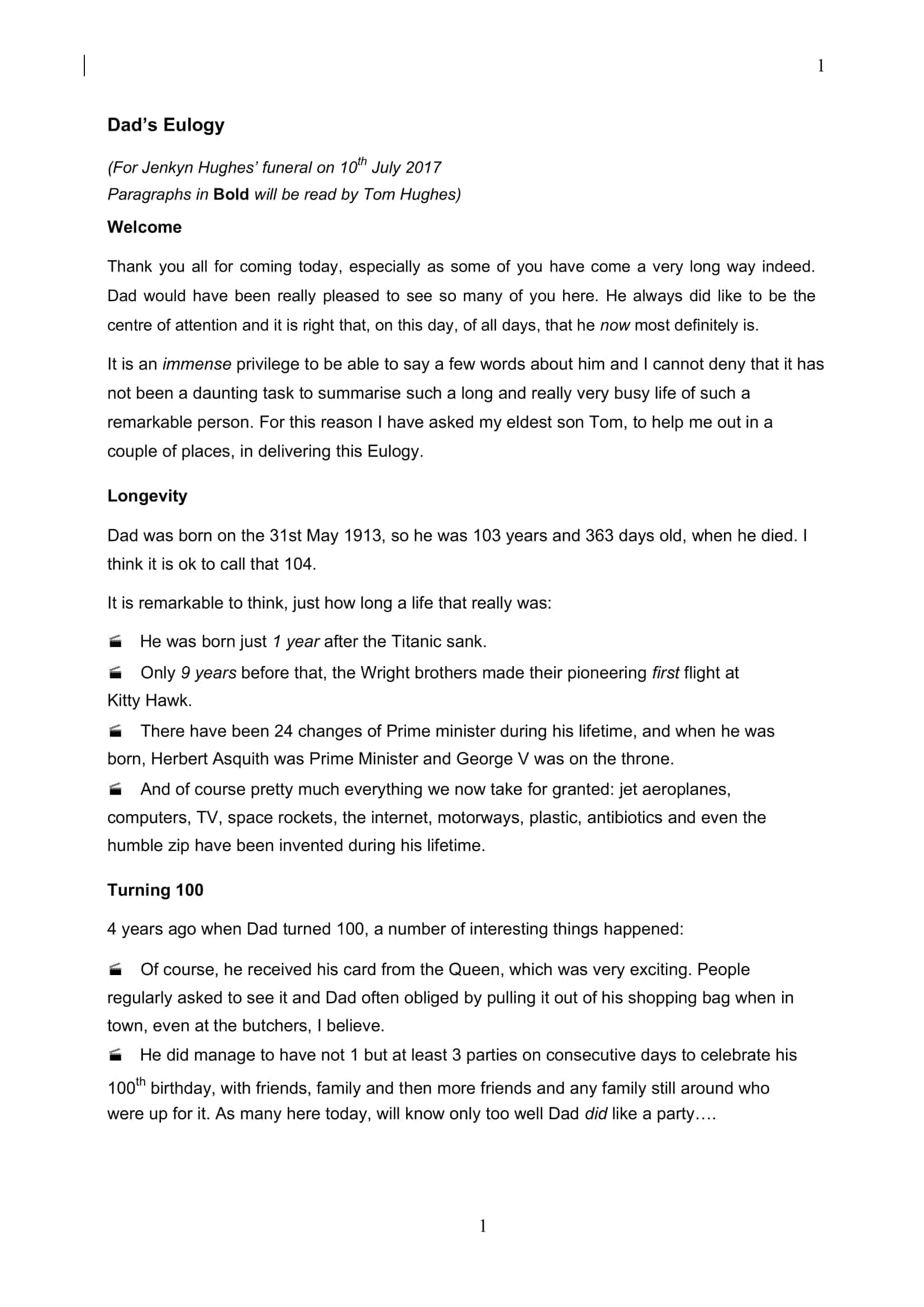

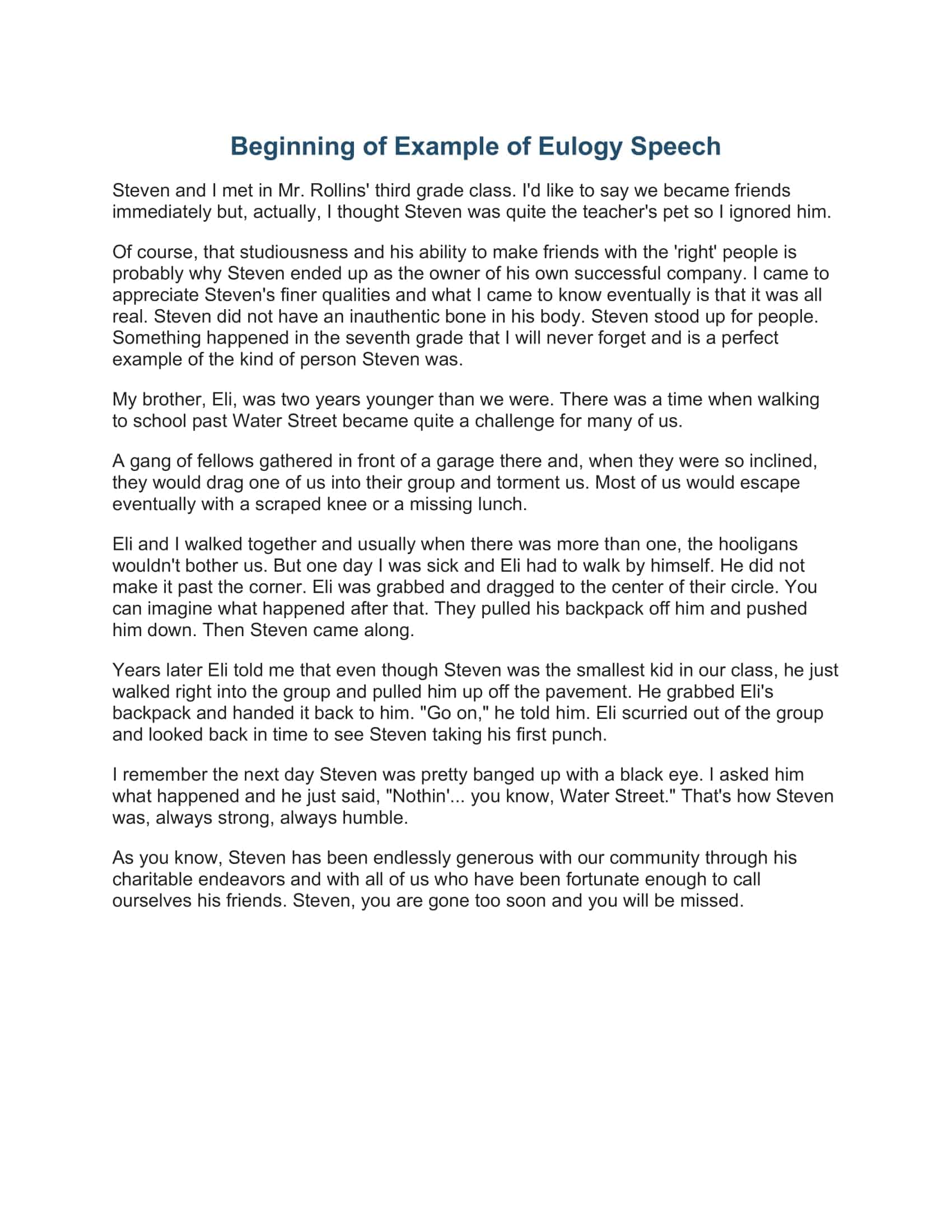


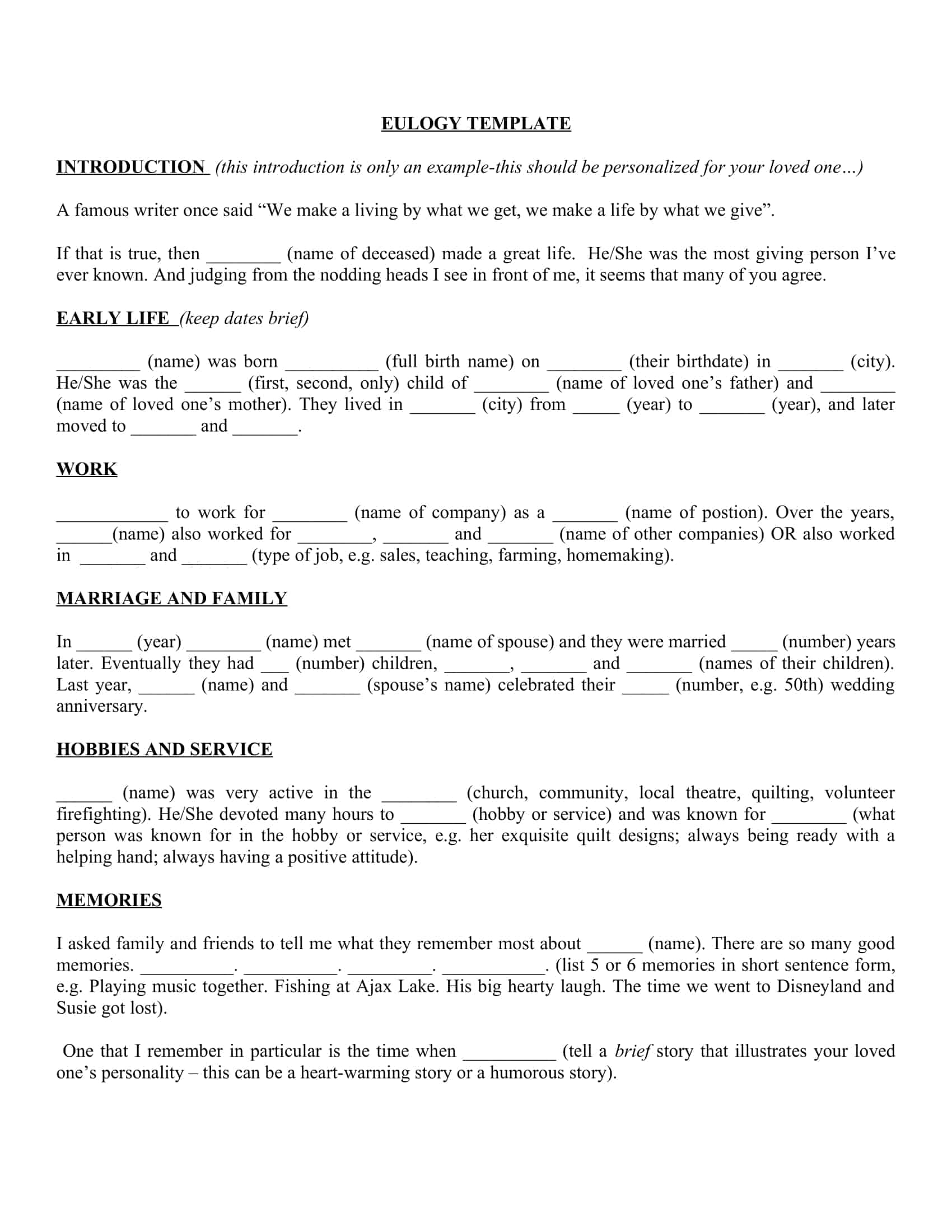
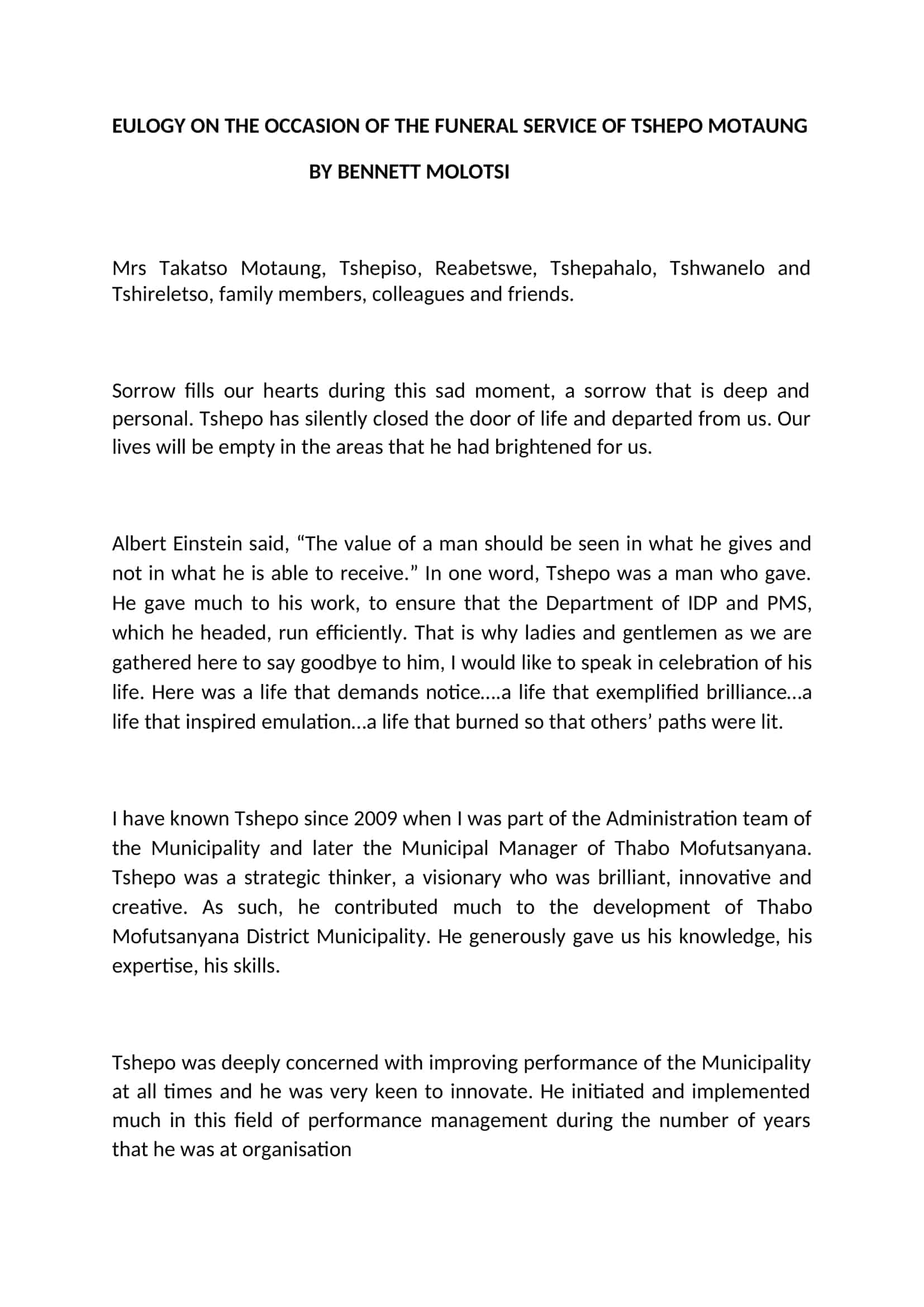
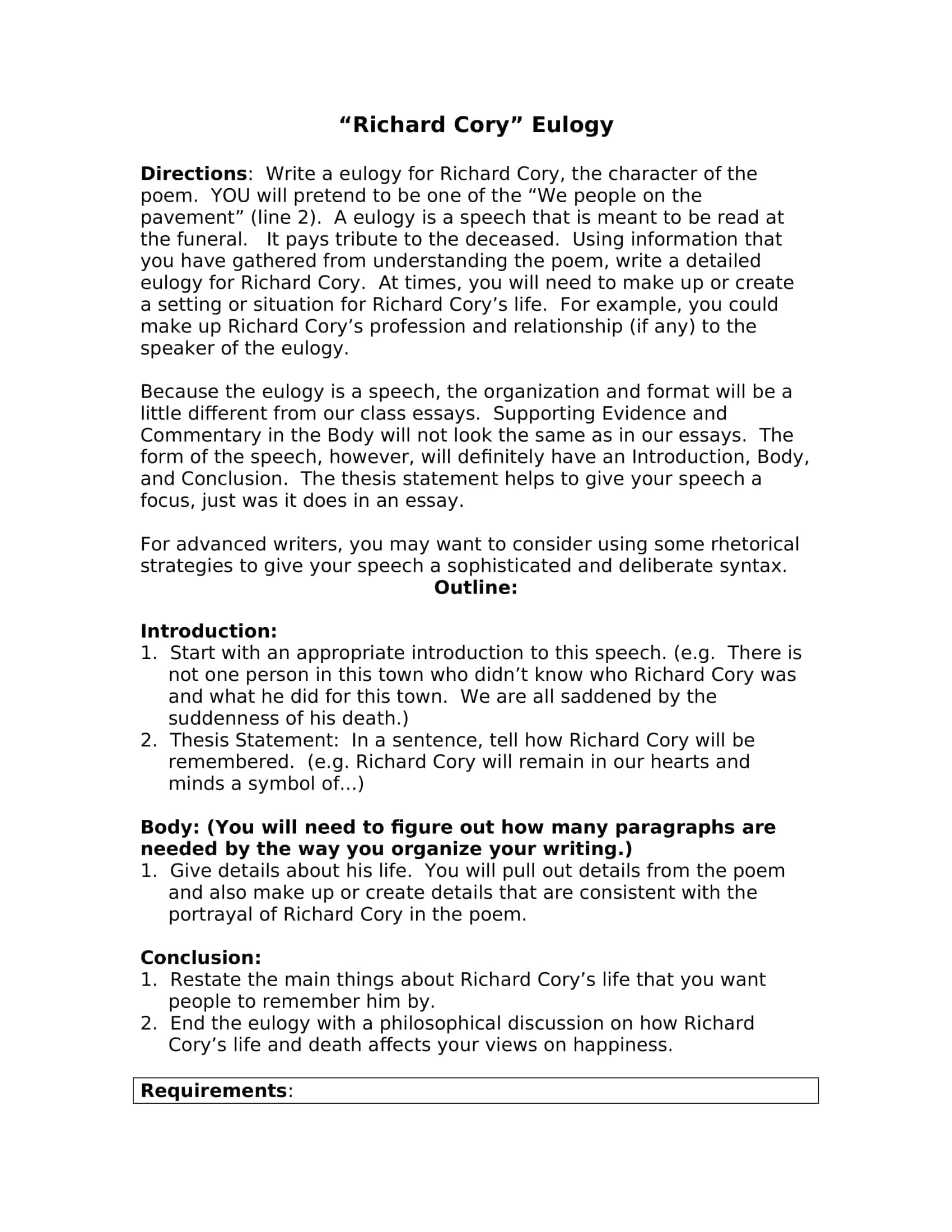



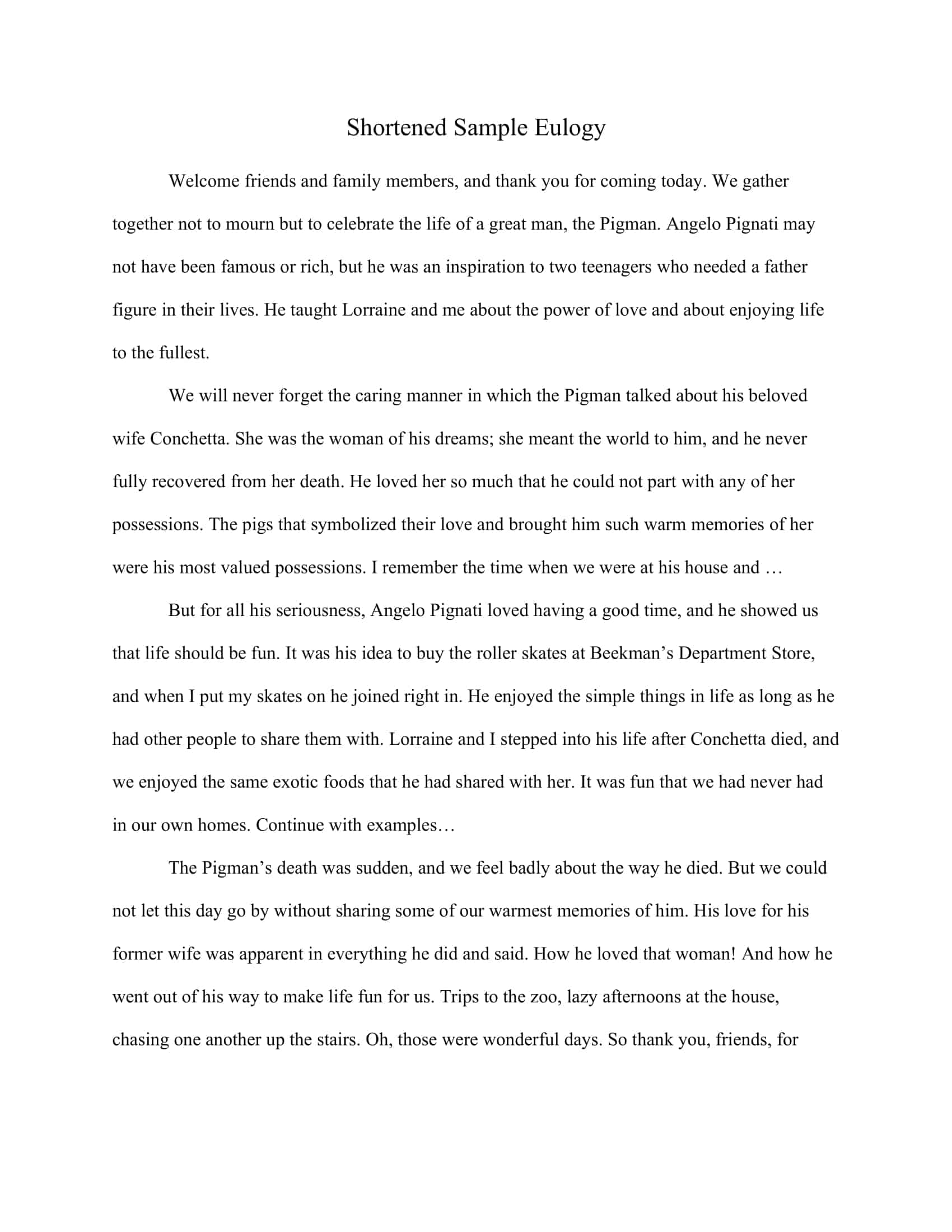
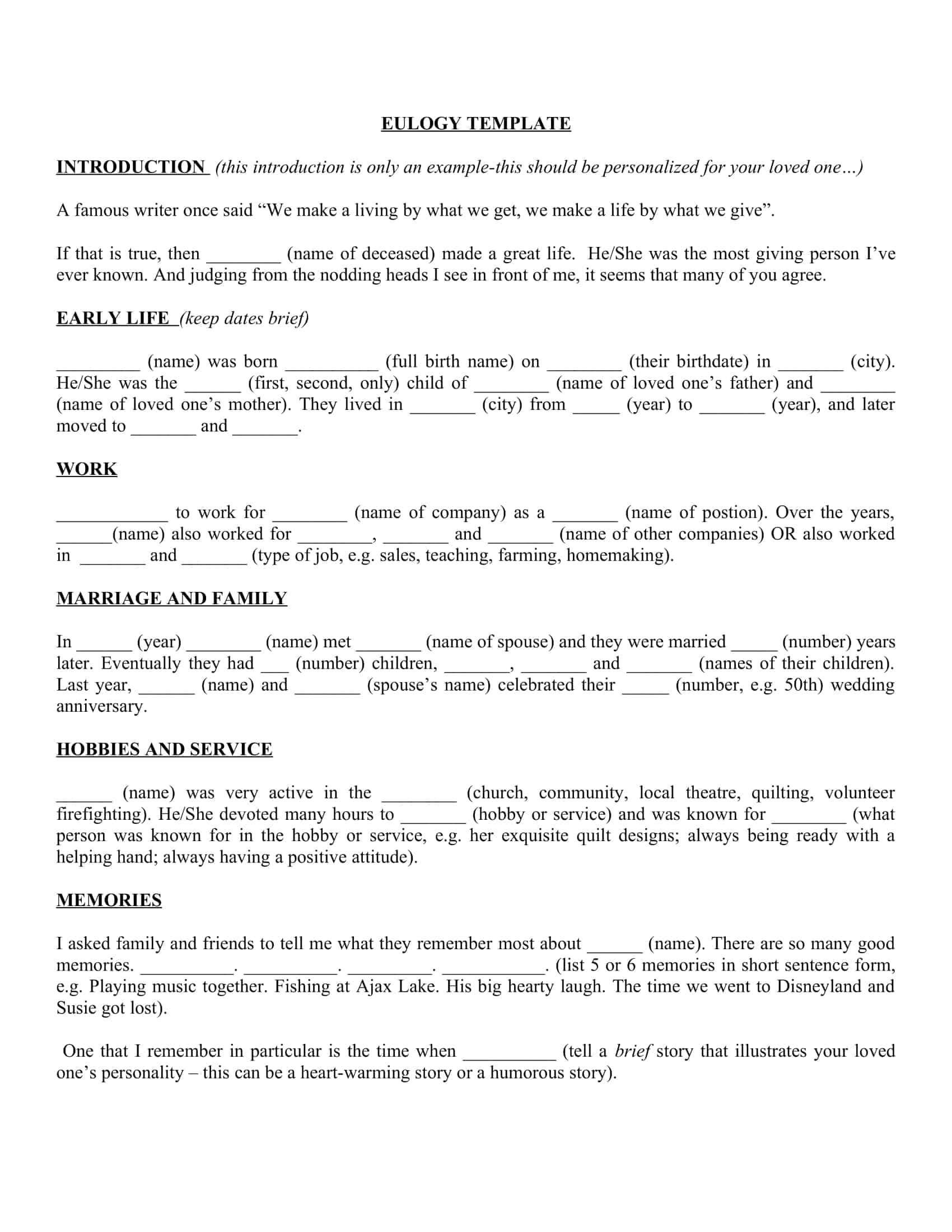


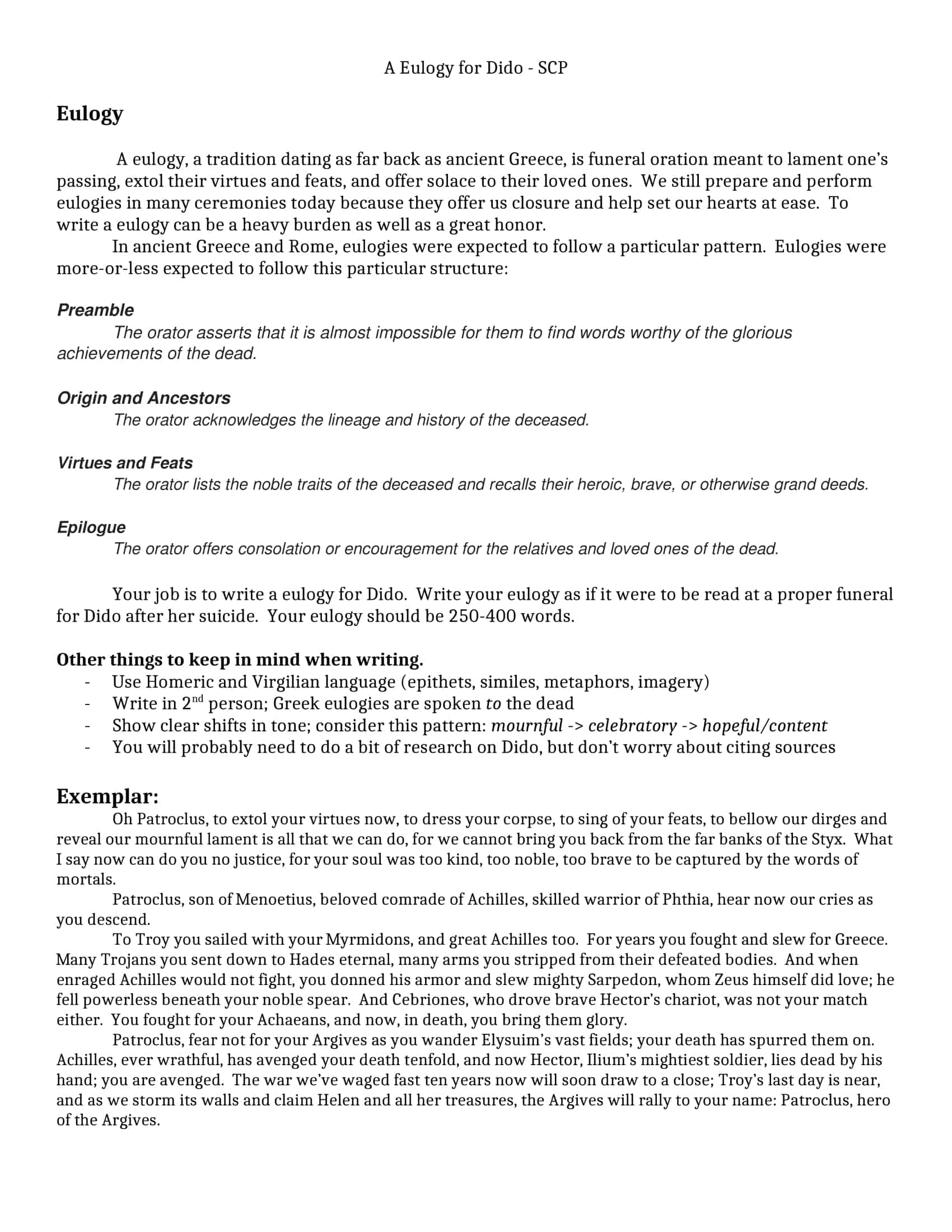
![Free Printable Roommate Agreement Templates [Word, PDF] 1 Roommate Agreement](https://www.typecalendar.com/wp-content/uploads/2023/06/Roommate-Agreement-150x150.jpg)
![Free Printable Credit Card Authorization Form Templates [PDF, Word, Excel] 2 Credit Card Authorization Form](https://www.typecalendar.com/wp-content/uploads/2023/06/Credit-Card-Authorization-Form-150x150.jpg)
![Free Printable Stock Ledger Templates [Excel,PDF, Word] 3 Stock Ledger](https://www.typecalendar.com/wp-content/uploads/2023/08/Stock-Ledger-150x150.jpg)
